I'm attempting to extract any text characters at the beginning, and the following two numbers of a string. If the string starts with a number, I'd like to get an empty string value instead so the resulting array still contains 3 values.
String:
'M2.55X.45'
Code:
'M2.55X.45'.match(/(^[a-zA-Z]+)|((\.)?\d+[\/\d. ]*|\d)/g)
Expected:
["M", "2.55", ".45"]
Actual (correct):
["M", "2.55", ".45"]
String:
'2.55X.45'
Code:
'2.55X.45'.match(/(^[a-zA-Z]+)|((\.)?\d+[\/\d. ]*|\d)/g)
Expected:
["", "2.55", ".45"]
Actual:
["2.55", ".45"]
